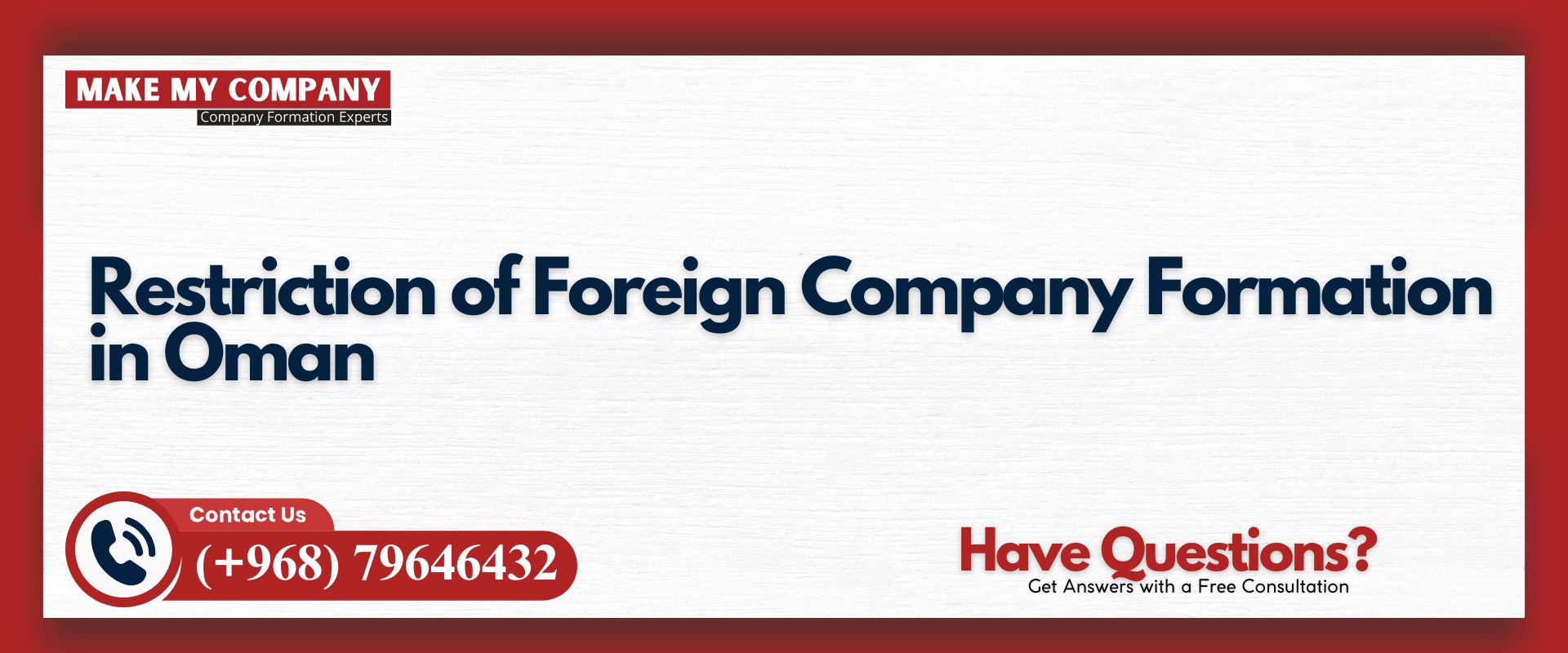Starting a small business in Oman can be an exciting and profitable venture, but it requires careful planning, understanding of the local market, and adherence to Omani laws and regulations. In 2024, Oman continues to offer a business-friendly environment with several incentives for entrepreneurs. This guide will provide you with a step-by-step approach on how to start a small business in Oman, covering all essential aspects, including business registration, licensing, funding opportunities, and more.
Understanding the Market and Business Opportunities in Oman
Before diving into the legal and procedural aspects of starting a business in Oman, it’s crucial to understand the local market and identify the best business opportunities in 2024. Oman’s economy is diverse, with strong sectors in oil and gas, tourism, logistics, manufacturing, and information technology. Small businesses in these areas, as well as in retail, food services, and healthcare, have shown significant growth potential.
Top Small Business Ideas in Oman:
- Tourism and Hospitality: Oman’s rich cultural heritage and natural beauty attract tourists year-round.
- Logistics and Supply Chain Management: With its strategic location, Oman is a logistics hub in the Gulf region.
- Food and Beverage Industry: Restaurants, cafes, and food delivery services are in high demand.
- Technology Startups: With the government’s push towards digital transformation, tech startups have a promising future.
- Healthcare Services: The demand for quality healthcare continues to rise, making it a lucrative sector.
Steps to Start a Business in Oman
Starting a small business in Oman involves several steps, each critical to ensuring that your business is legally compliant and well-prepared to operate in the Omani market.
- Conduct Market Research: Understand your target market, competitors, and customer needs. This will help you refine your business idea and plan effectively.
- Choose a Business Structure: Decide on the type of business entity that suits your needs, such as a Sole Proprietorship, Limited Liability Company (LLC), or a partnership.
- Create a Business Plan: A detailed business plan is essential for outlining your business objectives, strategies, financial projections, and growth plans.
- Select a Business Name: Choose a unique business name that complies with Omani regulations and reflects your brand identity.
- Register Your Business: Business registration is done through the Ministry of Commerce, Industry, and Investment Promotion (MOCIIP). Ensure that all necessary documents are prepared and submitted.
- Obtain the Necessary Licenses: Depending on your business activity, you will need to acquire the relevant licenses from local authorities.
- Open a Business Bank Account: A local business bank account is required to manage your company’s finances and to facilitate transactions.
- Hire Employees: If your business requires employees, ensure compliance with Omani labor laws, including obtaining work visas for expatriate workers.
Small Business Registration Process in Oman
Registering a small business in Oman is a straightforward process, but it requires careful attention to detail. The registration process involves several key steps:
1. Reserve a Business Name:
You can reserve your business name online through the Invest Easy portal. The name should be unique and not resemble any existing businesses.
2. Prepare the Required Documents:
Documents needed for registration typically include identification proof, a business plan, and the business structure details. Additional documents may be required depending on the nature of your business.
3. Submit the Application:
Submit your registration application online via the Invest Easy portal or directly at the Ministry of Commerce, Industry, and Investment Promotion.
4. Obtain the Commercial Registration Certificate:
Once your application is approved, you will receive a Commercial Registration (CR) certificate, which legally recognizes your business in Oman.
5. Register with the Chamber of Commerce:
Membership with the Oman Chamber of Commerce and Industry (OCCI) is mandatory for all businesses operating in Oman. This membership grants you access to various resources and networking opportunities.
6. Obtain Necessary Permits and Licenses:
Depending on your business activity, you may need additional permits from local municipalities or other government agencies. For example, a food and beverage business would require a health permit from the Ministry of Health.
Business License Requirements in Oman
Obtaining a business license is a crucial step in starting a small business in Oman. The type of license you need depends on your business activity and location.
1. General Trading License:
If you plan to engage in trading activities, a General Trading License is required. This license allows you to import, export, and sell goods in Oman.
2. Professional License:
For businesses providing professional services such as consultancy, accounting, or legal services, a Professional License is necessary.
3. Industrial License:
Manufacturing or production businesses need an Industrial License, which is issued by the Ministry of Commerce, Industry, and Investment Promotion.
4. Tourism License:
If your business is in the tourism sector, such as a travel agency or hotel, you will need a Tourism License from the Ministry of Heritage and Tourism.
5. Municipality License:
A Municipality License is required for businesses operating within a specific municipality. This license ensures that your business complies with local regulations and zoning laws.
Oman Business Laws for Small Businesses
Understanding and complying with Oman’s business laws is vital for the success of your small business. These laws govern everything from business registration to employee rights and taxation.
1. Omani Commercial Law:
This law outlines the rules for forming, operating, and dissolving businesses in Oman. It covers areas such as company structures, shareholder rights, and corporate governance.
2. Labor Law:
Oman’s Labor Law governs employment practices, including contracts, wages, working hours, and employee benefits. It also regulates the employment of expatriates.
3. Taxation Law:
Small businesses in Oman are subject to various taxes, including corporate tax, withholding tax, and value-added tax (VAT). It’s important to stay updated on tax laws to ensure compliance.
4. Intellectual Property Law:
If your business involves unique products, services, or branding, you should consider protecting your intellectual property through trademarks, patents, or copyrights.
5. Foreign Investment Law:
Oman’s Foreign Investment Law regulates the participation of foreign investors in the Omani market. It provides guidelines for ownership, repatriation of profits, and legal protections for investors.
Oman SME Support and Funding Opportunities
The Omani government is committed to supporting small and medium-sized enterprises (SMEs) through various initiatives and funding opportunities.
1. Riyada (Public Authority for SME Development):
Riyada offers a range of services to SMEs, including training, mentorship, and funding. They also provide guidance on business planning and market access.
2. Oman Development Bank (ODB):
The ODB provides financial support to SMEs through loans and credit facilities. Their focus is on businesses in sectors such as agriculture, manufacturing, and tourism.
3. Al Raffd Fund:
This government-backed fund offers financial assistance to young entrepreneurs and startups. The fund provides interest-free loans and grants to eligible businesses.
4. Oman Business Forum:
This forum is a platform for SMEs to connect with larger corporations and government entities. It offers networking opportunities, workshops, and access to business resources.
5. Tax Incentives for SMEs:
The Omani government offers tax incentives to encourage the growth of SMEs. These include reduced tax rates, exemptions for certain business activities, and deductions for research and development expenses.
Challenges of Starting a Small Business in Oman
While Oman offers a supportive environment for small businesses, there are challenges that entrepreneurs may face.
1. Navigating Bureaucracy:
The process of registering a business and obtaining the necessary licenses can be time-consuming and complex, particularly for foreign entrepreneurs.
2. Market Competition:
Depending on the industry, competition can be fierce, especially in sectors like retail and hospitality. It’s important to conduct thorough market research and identify a niche market.
3. Access to Funding:
While there are funding opportunities available, securing financing for a small business can be challenging, especially for startups without a track record.
4. Understanding Local Culture:
Omani culture places a strong emphasis on relationships and trust. Building a network of local contacts and understanding cultural norms can be key to business success.
5. Adapting to Legal and Regulatory Changes:
Oman’s business laws and regulations are subject to change. Keeping up with these changes is essential to ensure compliance and avoid legal issues.
How to Start an LLC in Oman
One of the most common business structures for small businesses in Oman is the Limited Liability Company (LLC). Starting an LLC offers several benefits, including limited liability protection, flexibility in management, and ease of operation.
Steps to Start an LLC in Oman:
- Choose Your Business Name:
Ensure the name is unique and complies with Omani naming regulations. It should also reflect the nature of your business. - Draft the Articles of Association (AoA):
The AoA is a legal document that outlines the structure, management, and operation of the LLC. It must be submitted during the registration process. - Appoint Shareholders and Managers:
An LLC in Oman requires at least two shareholders and one manager. Shareholders can be individuals or corporate entities. - Register with the Ministry of Commerce, Industry, and Investment Promotion:
Submit the necessary documents, including the AoA, to the MOCIIP to register your LLC. - Obtain a Commercial Registration Certificate:
Once approved, your LLC will receive a Commercial Registration (CR) certificate, allowing it to operate legally in Oman. - Open a Corporate Bank Account:
A local corporate bank account is necessary for conducting business transactions and managing your company’s finances. - Obtain Necessary Licenses and Permits:
Depending on your business activity, you may need additional licenses or permits from relevant authorities.
Cost of Starting a Small Business in Oman
The cost of starting a small business in Oman can vary depending on several factors, including the type of business, location, and licensing requirements.
Initial Costs:
- Business Registration Fees: The cost of registering your business with the MOCIIP.
- License Fees: Depending on your business activity, you may need to pay for multiple licenses.
- Office or Retail Space: Renting or purchasing commercial property can be a significant expense.
- Equipment and Supplies: Depending on your business, you may need to invest in equipment, inventory, or supplies.
Ongoing Costs:
- Employee Salaries: Wages for local and expatriate employees.
- Marketing and Advertising: Costs associated with promoting your business.
- Utilities and Maintenance: Regular expenses such as electricity, water, and property maintenance.
- Taxes and Insurance: Corporate taxes, VAT, and business insurance premiums.
Opening a Small Business Bank Account in Oman
Opening a business bank account in Oman is a crucial step in managing your business’s finances. A local bank account is required for all registered businesses and is necessary for conducting transactions, paying employees, and managing cash flow.
Steps to Open a Business Bank Account:
- Choose a Bank:
Research and select a bank that offers services tailored to small businesses. Consider factors such as fees, online banking options, and customer service. - Prepare Required Documents:
Documents typically required include your Commercial Registration (CR) certificate, Articles of Association, identification proof, and business license. - Submit the Application:
Visit the bank to submit your application and documents. Some banks may offer online account opening services. - Meet Compliance Requirements:
Banks in Oman are required to comply with anti-money laundering (AML) regulations. You may need to provide additional information to meet these requirements. - Activate Your Account:
Once approved, your account will be activated, and you can begin conducting business transactions.
Your Path to Success with Make My Company
Starting a small business in Oman in 2024 is a promising opportunity for entrepreneurs who are prepared to navigate the regulatory landscape and seize market opportunities. From understanding the local market to registering your business and obtaining the necessary licenses, each step is crucial to your success.
At Make My Company, we specialize in helping entrepreneurs like you set up and grow their businesses in Oman. Whether you need assistance with business registration, obtaining licenses, or navigating Omani business laws, our team of experts is here to guide you every step of the way.
Partner with us to make your business dreams a reality in Oman. Contact Make My Company today to get started on your entrepreneurial journey!
Starting a Small Business in Oman: A Comprehensive Guide
Oman has become a thriving destination for entrepreneurs looking to establish their ventures. With its strategic location, growing economy, and business-friendly policies, the Sultanate offers excellent opportunities for a small business startup in Oman. However, before diving in, it’s essential to understand the business registration in Oman process, legal requirements, and available support systems. Here’s a detailed overview to help you navigate the Oman business setup process efficiently.
One of the first steps to start a business in Oman is completing the business registration in Oman. The process requires submitting key documents such as a business plan, identification, and proof of capital. Depending on the type of business you want to start, you will also need to meet specific legal requirements and obtain the appropriate licenses for small business in Oman. Whether you’re launching a retail store, consultancy, or online business, registering your company is mandatory to operate legally.
Exploring small business ideas in Oman is a crucial step to ensure the viability and success of your venture. Oman’s economy is diverse, with opportunities ranging from tourism, retail, and technology to food services and construction. Once you’ve selected an idea, it’s essential to develop a solid business plan for your Oman startup. A clear business plan not only helps you map out your goals but also makes it easier to secure funding and approval during the registration process.
Complying with the legal requirements for starting a business in Oman is key to avoiding any operational delays or penalties. This includes understanding tax obligations, employee laws, and local regulations. Additionally, building relationships and networking for entrepreneurs in Oman is vital. Oman offers numerous business forums, networking events, and mentorship opportunities that can connect you with industry leaders and potential partners, further boosting your business success.
By focusing on these key steps and understanding the Oman business setup process, aspiring entrepreneurs can successfully launch and grow their businesses in this thriving market.









